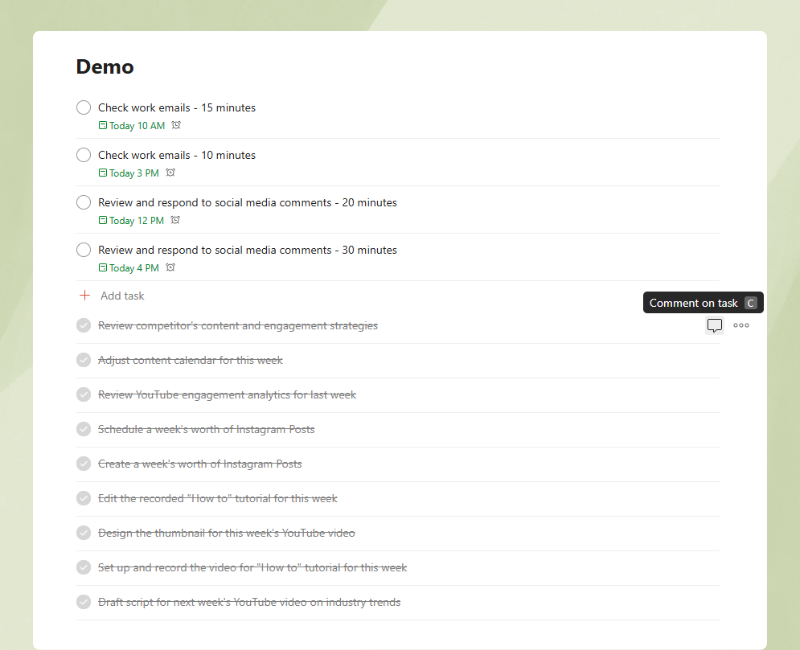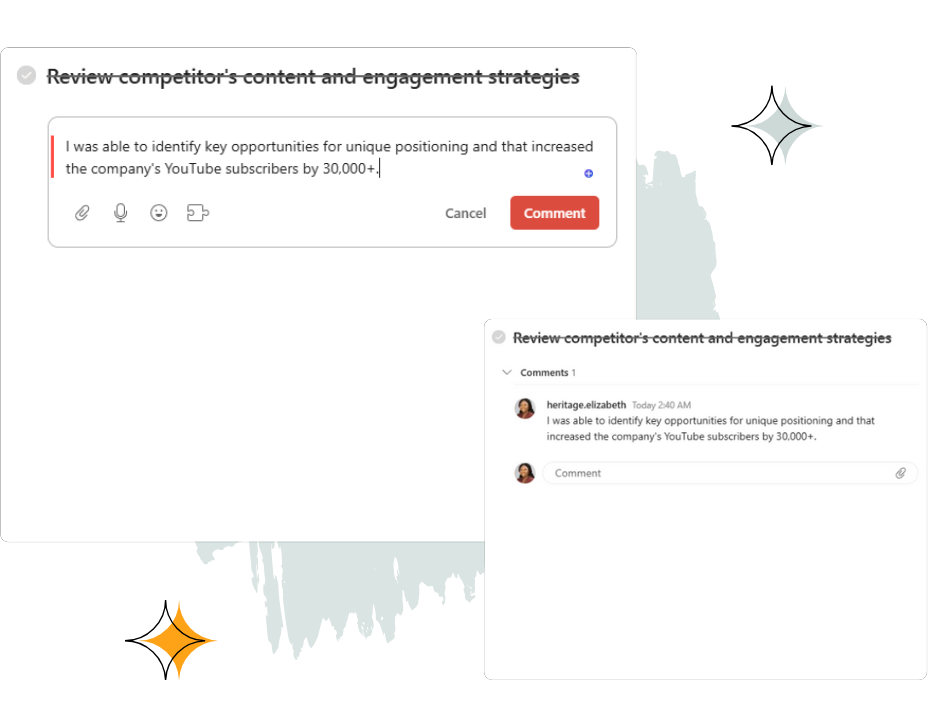Uncover Your Yearly Wins with a Simple ‘Got-Done’ List

Happy New Year!
Right off the top of your head, can you list all of your work achievements from last year? It’s tricky, isn’t it?
My boss once told me that many professionals, even those who keep detailed to-do lists, struggle to sum up their accomplishments on the spot.
Initially, I didn’t believe it. If you manage a daily task list, you’re constantly aware of what you’re doing, what you’ve finished, and the impact you’ve made. Surely, you’d remember every big win! But then, my boss challenged me with a direct question: “Can you name your top results as a social media manager this year?” She wanted me to answer as if I were interviewing for a new role. That made me pause.
Since I wasn’t job hunting at the time, I hadn’t been documenting every success closely. As a result, I could only recall two out of eight major achievements. This was surprising because I live by my to-do lists every day. I write my tasks in the morning and check them off by evening—so how could I forget?
It turns out that once a task is checked off, it’s easy for it to fade from memory. I realized I wasn’t actively celebrating or even acknowledging my wins after completing them. Instead, I was already focused on the next item on my list.
Why does this happen to many of us?
According to research published by the Society for Personality and Social Psychology, our brains naturally focus more on the negative aspects of our experiences due to “negativity bias.” We’re wired to overlook our positive achievements unless we make an effort to recognize them. Interestingly, other people tend to see our strengths and wins more clearly than we do ourselves. Something we view as minor might actually impress our colleagues or friends.
How does this affect us?
I used to think I wasn’t making any real progress. It felt like everyone else was moving ahead while I stayed stuck. Part of the problem was that I didn’t take the time to acknowledge my successes.
Instead, I focused on my daily struggles and failures. Because of this, I lost sight of the positive outcomes of the projects I worked on and the growth I was experiencing.
I didn’t know how to share my wins because I was convinced I wasn’t doing enough. It’s a common feeling—many professionals feel stuck in the same role for years because they can’t articulate how they’ve grown or the value they’ve brought to their team.
When you constantly feel like you’re behind, you might chase after endless tasks just to prove yourself. But if you never pause to reflect, you miss out on recognizing your own growth. Over time, this can eat away at your confidence and lead you to focus on the wrong priorities. You might even keep trying to improve the skills you’ve mastered instead of building on areas where you truly need growth.
Why does reflection matter?
Taking a step back to review your achievements helps you see where you truly stand. It also makes it easier to communicate your contributions to others—whether it’s your boss or your colleagues.
Studies have shown that people are more productive when recognition and rewards are used to motivate them.
I’ll share some of the methods I’ve learned for effective self-reflection. I’ll also walk you through the ways I track my achievements so you can gain a clearer picture of your professional journey and celebrate your own successes.
How to do ongoing work reviews with a ‘got-done’ list
We all have our own ways of reviewing work, but if you’re like me, you probably live by your to-do lists. Here’s an easy method to track and celebrate your accomplishments using a “got-done” list.
Instead of racing toward every new deadline without looking back, try pausing to review what you’ve already completed. This extra step will remind you of your hard work, help you see how far you’ve come, and capture details you might otherwise forget.
How to get started
- Open your ‘got-done’ list: This list is just a record of tasks you’ve marked as completed. If you’re a Todoist user, you can view your completed tasks in the Projects (or Activity) section.

- Leave a short note for each win: Whenever you see a task that led to a positive outcome, add a quick comment about it. This way, the important details stay fresh. You won’t have to strain your memory when you want to remember specific wins later on.

- Review Regularly: You can do this anytime—weekly, monthly, or whenever you get a free moment. Adding your thoughts in real-time will make your reviews more meaningful.
How often should you review?
It’s totally your call, but here’s what I do:
- Year-End: By the time I do my annual review, I have a neat overview of everything I accomplished during the year—no more hunting for details or trying to remember what I did in February.
- Monthly: At the end of each month, I look through my completed tasks. I highlight any that stand out and leave a note about the results I got.
- Twice a Year: I revisit these comments and copy them into a separate document. This helps me track bigger milestones or patterns.
Finally, I like to kick off the new year by updating my résumé, LinkedIn profile, and portfolio with the wins I’ve noted. It’s a simple habit that helps me stay organized and makes it easier to celebrate my progress over time.
Give this “got-done” method a try, and see how much clarity it brings to your work and achievements!
Heritage Elizabeth Akangbe
Heritage is passionate about all things marketing. When she isn’t working, you’ll find her on her farm with a book in hand, accompanied by her two dogs.

